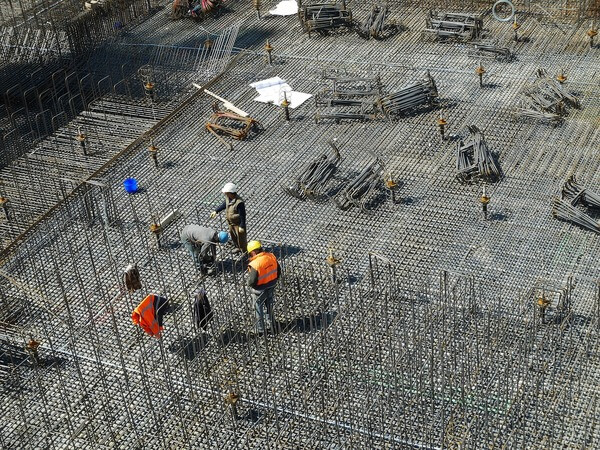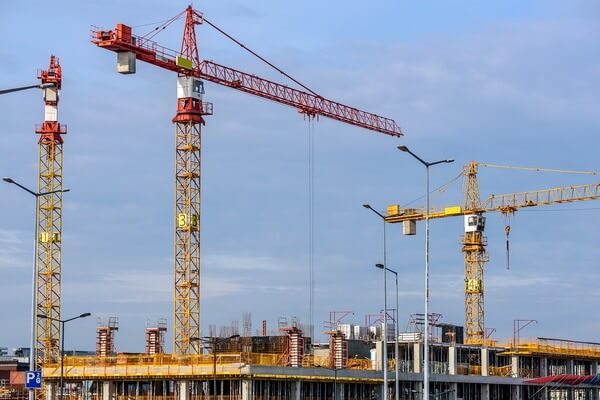News Release from windfair.net
Wind Industry Profile of
The Inflation Reduction Act: A Success Story
It was an uphill battle before the Inflation Reduction Act (IRA) could finally be passed, as internal squabbles within the Democratic Party repeatedly caused delays. But it was only with the help of all the votes in his own party that US President Joe Biden was finally able to put his signature to the bill.
Almost a year has passed since then - and the Inflation Reduction Act has proved to be a stroke of luck for the USA. The massive subsidies for companies in the clean tech sector have triggered a boom for the energy transition in the U.S. Finally, it has to be said, because the country, as one of the largest CO2 emitters, has long struggled to boost the energy transition. But at a time when the U.S. is also being hit by increasingly severe, man-made freak weather, things are going all the better for it.
The American Clean Power Association (ACP) recently noted that since last August, when the IRA was passed, construction of some 80 major clean energy production facilities has been announced, an investment equal to the total of the previous seven years. "It seems like every week there’s a new factory facility somewhere" being announced, said Jesse Jenkins, a professor at Princeton and leader of the REPEAT Project which has been deeply involved in analysis of the law, according to AP. "We’ve been talking about bringing manufacturing jobs back to America for my entire life. We’re finally doing it, right? That’s pretty exciting."

More than 80 major projects have been triggered by the IRA in the U.S. in the past 12 months (Image: Pixabay).
Above all, the factor of building domestic supply chains to undermine the dominance of other nations such as China is driving investment in the US. If you want to offer your products to the U.S. renewable energy market, you have to produce them locally. And so it's no surprise that even Vestas has announced multi-million dollar investments in its Colorado factory. And this at a time when turbine manufacturers are floundering. Problems in the supply chain, product shortcomings and increasing pressure from China, where new records have been set in recent months for the capacity of individual turbines, are driving worry lines across companies' foreheads.
"Wind energy is a key economic driver for local communities, and we look forward to bringing new clean energy jobs and economic development to Colorado. This $40 million direct investment in our onshore manufacturing footprint is a testament to our commitment to deploying the V163-4.5 MW turbine across North America and beyond to support the clean energy transition," said now Laura Beane, president of Vestas North America. "We applaud Colorado’s continued commitment to expanding clean energy as well as the passage of the Inflation Reduction Act which has helped kickstart a domestic supply chain," she added as justification. While more and more production capacity has been cut in recent years, especially in Europe, the IRA has ensured that things are up and running again in the United States.
In addition to creating jobs in the region for ongoing turbine production, the expansion of Vestas' manufacturing facilities will also create construction jobs and provide more opportunities for local service and component suppliers. Last year alone, Vestas spent more than $465 million in Colorado's local supply chain and donates $30,000 each year to the local community. "We look forward to delivering additional economic impact to the state through these manufacturing investments", the Danish manufacturer said.

There is currently no end in sight to the construction boom (Image: Pixabay).
It's a success story that's also reflected in the numbers in the job market: jobs in the clean energy industry grew 3.9% last year, outpacing overall U.S. employment and all other forms of energy, according to a recent report from the Department of Energy. More than 18,000 new clean energy jobs were created in the U.S. in 2022, bringing the total number of clean energy jobs in the U.S. in the wind, solar and battery storage sectors to more than 460,000.
"We are on the leading edge of incredible growth in the clean energy economy. Clean energy production and the manufacturing of new energy technologies are creating new career paths and economic opportunity in communities across the country," said Jason Grumet, CEO of the American Clean Power Association.
And Vestas also plans to hire more workers, with between 800 and 1,000 local employees to support production at its two blade and nacelle factories. The company is also offering an internship program and plans to work with local high schools to provide students with career development opportunities and hands-on training in manufacturing through an apprenticeship program. As a result of this program, Vestas is preparing to hire 150 local high school graduates in the coming years, addressing a problem that is currently affecting the European renewable industry in particular: the shortage of skilled workers.
- Author:
- Katrin Radtke
- Email:
- press@windfair.net
- Keywords:
- Inflation Reduction Act, IRA, USA, skill, Vestas, manufacturer, jobs, shortage, renewable energy, success


























